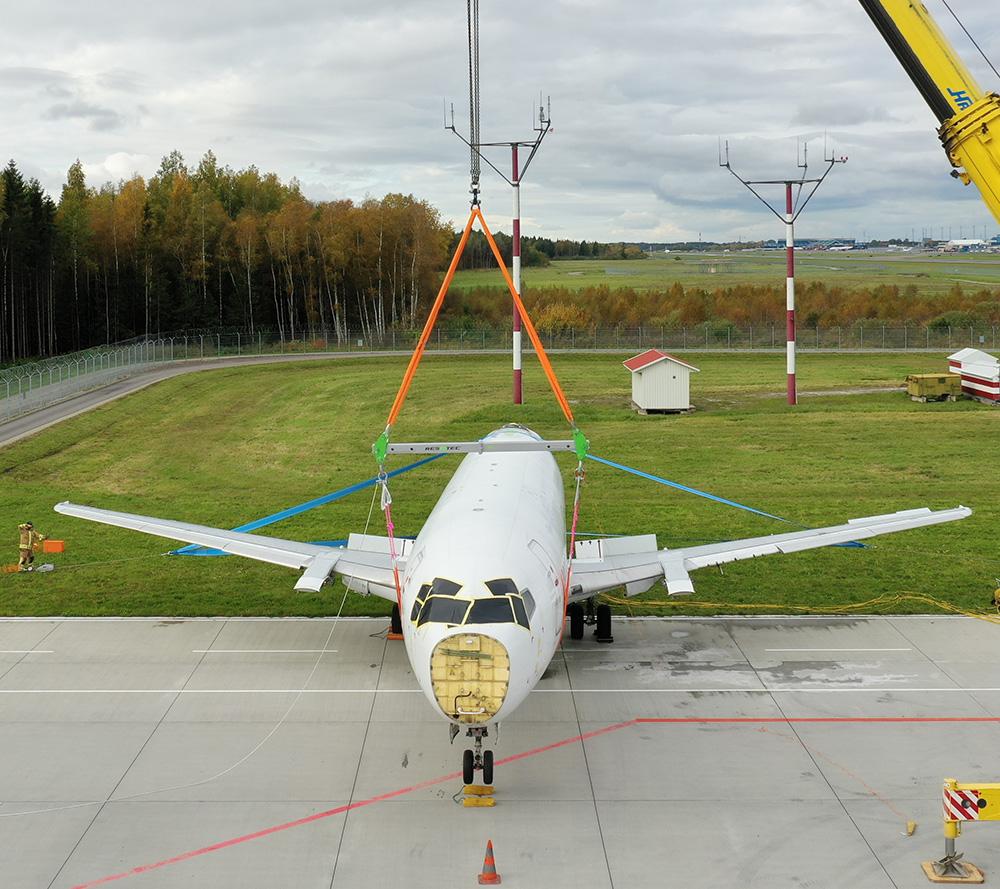
Recent runway excursions are putting the spotlight on the importance of adequate training for aircraft recovery.
The process of recovering the aircraft is extremely challenging, and it requires meticulous planning, well-thought-out strategies and training.
The fire and rescue team at iGA Istanbul Airport recently carried out a simulated nose landing gear failure recovery at the Kunz Aircraft Recovery Training Academy in Germany. The training scenario was similar to the Istanbul FedEx runway incident in May, which was a textbook recovery of a Boeing 767. According to Kunz, that successful recovery was largely down to regular training to keep up with the relevant skills.
In 2023, Kunz joined the International Civil Aviation Organization’s (ICAO) Trainer Plus program. The offering includes standard training packages (STP) that are analyzed and approved by ICAO. These are offered in addition to the regular training portfolio developed by Kunz. Participants will receive a Kunz certificate as well as an official certificate from ICAO.
“We are still in the process of developing the STP,” says Andreas Fuge, managing director at Kunz. “It is an incredibly bureaucratic approach, but we are getting there.” However, Fuge says the practical training element will soon be Kunz’s second STP, and a management training program will be ready sometime this summer.
AMS Aircraft Recovery in California is taking a three-level approach, starting with strategic planning courses aimed at helping customers evaluate their risks and develop and test their active response plans. These courses are typically catered toward managers tasked with enterprise resource planning and contingency planning.
“This is generally a one-day course and works equally well virtually or on-site,” says Yudie Fishman, managing director at AMS Aircraft Recovery.
The second level is operational planning, where recovery team managers delve deeper into the types of incidents and implementation of the recovery plan. “We train recovery personnel to manage the complexity of a multi-agency response,” says Fishman. He also highlights the importance of case studies and tabletop exercises in this three-day course.
Finally, AMS offers a range of 3-5 day hands-on practical training courses for the team members directly involved in the recovery process. These are conducted at its training school at Cotswold Airport in the UK or the customer’s site, using narrow- and widebody aircraft in realistic scenarios.
Meanwhile, Reqtec in the Netherlands started providing aircraft recovery training in 2010 to enable preparedness for all stakeholders involved in aircraft recovery operations. The company provides 50 training courses at several aircraft recovery training centers globally, offering theoretical and practical training programs of different skill and experience levels.
“In these courses, we welcome all stakeholders involved in aircraft recovery operations, from aircraft maintenance engineers and regulators to airport managers and military personnel,” says Dennis Beck, global sales director at Resqtec.
The company also introduced its own Resqtec Aircraft Recovery Diploma program, which includes a curriculum of theoretical and practical courses that trains and qualifies participants to conduct an aircraft recovery operation independently.
Resqtec’s aircraft recovery courses were accredited by Airports Council International in 2023, and Beck says the company has ongoing accreditation processes with other institutions.





